Language development in primary school children aged between 5 and 8 years.
Early language researchers used to think that by the time a child reaches school age their language skills are almost fully developed, but in fact there is enormous growth in all aspects of language and children learn how to communicate more effectively right through their school years.
In other words, they are not learning what language is, but what it is for.
Areas of development:
Syntax (oral and written grammar) – a greater understanding and use of complex sentences. This includes morphological markers like “-ed” signifies past tense and “s” or “z” signifies plurals.
Semantics (the meaning and organization of words)- expanding vocabulary and ability to understand written and spoken language using context to help with comprehension.
Phonology: (speech sounds) – Articulation skills continue to develop until around the age of 8 years when all speech sounds in English are said correctly.
Pragmatics: (the social use of language) and expanding ability to request, inform, express feelings and hold conversations with others. Understanding when it is appropriate to speak, other’s intentions and how to enter a conversation.
Metalinguistics: (ability to reflect on language objectively or using language to think about language)- a greater ability to understand and use humour, figurative language, ambiguity and metaphors. This also includes the ability to identify smaller and smaller units of speech and then link them to written letters and words. Children, become aware of and produce rhyming words and manipulate the sounds in words e.g. say ‘pat’ without the P.
 The speech therapist can help children who might be struggling in these areas. These children may have difficulty processing auditory and written information and remembering it which makes following directions very challenging especially in a noisy environment.
The speech therapist can help children who might be struggling in these areas. These children may have difficulty processing auditory and written information and remembering it which makes following directions very challenging especially in a noisy environment.
They may have difficulty getting the ‘main idea’ when trying to extract spoken or written information.
Their conversation may seem tangential and sometimes they may appear to have word finding problems causing them to gesture or use interjections like “the thingy uhm, you know ….”. Children with language difficulties are often unaware of their own thinking and learning processes and have poorly developed metacognition.
Top Tips for parents of children who have difficulty with understanding or telling stories:
- Read to and with your children daily and talk about the reading material. Talk about other possible outcomes, what the characters may have been feeling, make predictions as you read through the story and see which ones come true.
- Read content to them that rhymes so that they start hearing those aspects of language and when they are confident with identifying rhyming words, ask them to complete the line using the rhyming word e.g. “the fat cat sat on the …..”
- Help them identify the main idea of any story that they read or heard.
- Be an interested listener when your child is telling you a story. Model good listening skills by making eye contact and taking an interest.
- Make your child aware of the beginning, middle and end of stories and use words that cue those parts.
- Allow them more time to think before they speak and encourage them to tell you in one sentence what they mean if they tend to go on long and unrelated tangents.
- Help them with specific vocabulary if they seem unsure “did you mean ……. Or ………… .
- Encourage your child to retell a story in their own words either to you or a new listener.
Top tips for teachers of students who have auditory processing difficulties:
- Try to pair listening with visual information. Have a written list or explanation as well as giving instructions.
- Keep instructions short and specific.
- Allow extra thinking time for a student who needs more time processing information.
- Ask the student to repeat instructions to you.
- Check that they understand new vocabulary or concepts.
- Slow your speech down slightly and emphasize the important words with your voice.
- Place the student where you can monitor confusion or a lack of comprehension.
Sources:
Language disorders and ADHD- Phillipa Greathead. SLT New South Wales.
Language development- Robert E Owens (1988).
Tanya Collett
Hear Say
hearsay.co.nz



